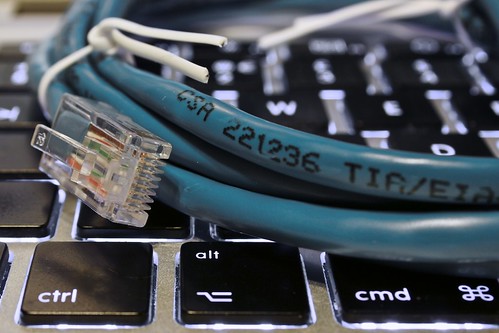I feel like the internet might just be the closest thing there is to a meritocracy. If an audience for a topic exists, they will find or create an internet resource for that topic, and the best-written ones often float to the top. Since anyone can theoretically go to the public library and create a website for free, small interest groups can connect, exchange ideas, and grow more easily than in a print-only age. (Not that this erases class privilege; I'm able to blog as much as I do because I own a computer and because my education enables me to write quickly, to name just two advantages.)
Right now the internet operates on a principle of net neutrality; your ISP doesn't distinguish between this humble little blog and, say, Amazon. You have access to data from each at the same rate, and any difference in speed should be server-side.
Internet service providers, on the other hand, would love to be able to dictate access. Without net neutrality, they could offer faster access for a price, or block competitors entirely. This could potentially trickle down into search engine rankings; slower loading sites will be less preferred by users, and may then drop in rank. (Note, however, that I do not know enough about Google's rankings system to say that this will in fact happen.)
Last December the FCC upheld net neutrality, albeit with some troubling potential loopholes. Cell phone wireless providers, who struggle to keep up with the demand for high-speed internet access, seem to be granted more leeway in determining what sites get speedy access and what sites get blocked.
And so the battle for net neutrality continues. As mobile devices rule a larger and larger share of our online lives, the precedents we set now will become extremely important. If unrestricted access to all of the internet is as important to you as it is to me, consider contacting your favorite congressperson.

No comments:
Post a Comment